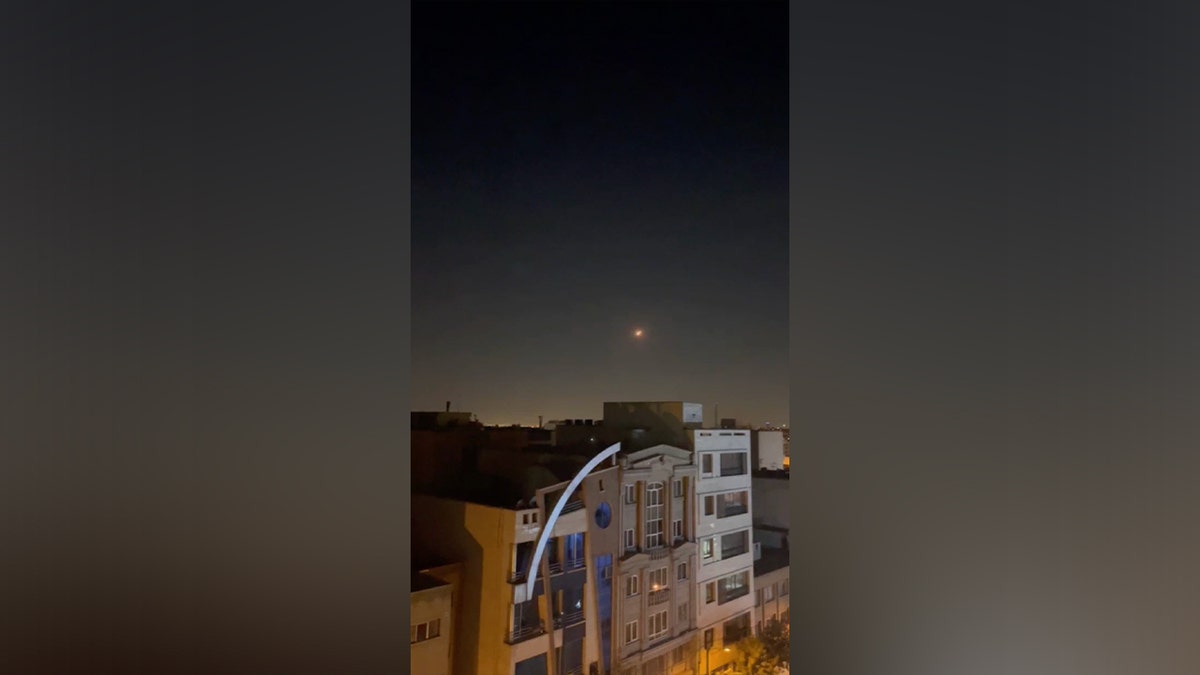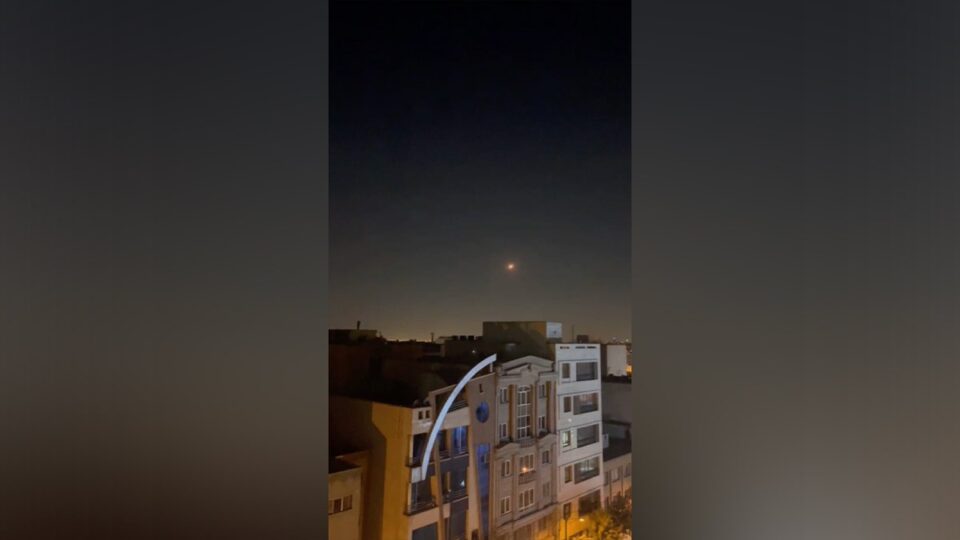JERUSALEM—After Israel’s daring aerial military strikes in Iran early Saturday, the Jewish state announced that it is prepared to continue to go on the “offense” against the world’s worst state-sponsor of terrorism, the Islamic Republic of Iran, if Tehran responds.
The Israel Defense Forces (IDF) Spokesperson, Rear Admiral Daniel Hagari, said, “If the regime in Iran were to make the mistake of beginning a new round of escalation – we will be obligated to respond. Our message is clear: All those who threaten the State of Israel and seek to drag the region into a wider escalation — will pay a heavy price.”
He added, “We demonstrated today that we have both the capability and the resolve to act decisively — and we are prepared — on offense and defense — to defend the State of Israel and the people of Israel.”
US MADE AWARE OF ISRAEL’S STRIKE ON IRAN DAYS IN ADVANCE; IDF SAYS MISSION COMPLETE

Iranian air defense reportedly operating as Israel began striking Iranian targets in Tehran. (Obtained by Fox News)
Israel dubbed its Saturday mission “Days of Repentance” as a response to Iran’s launch of its barrage of around 200 ballistic missiles on October 1 into the Holy Land. Iran said it attacked Israel as retaliation for the IDF’s elimination of the Tehran-backed global Hezbollah terrorist, Hassan Nasrallah, in Beirut.
Pressure on Israel’s Prime Minister Benjamin Netanyahu from the Biden-Harris administration seems to have paid off on Jerusalem limiting its historic attack on Iran to purely military installations. Israel avoided knocking out Iran’s illicit nuclear weapons sites and its vast oil production enterprises.
“Israel opted for the least-aggressive response against the Islamic Republic by conducting precise strikes on military targets,” noted Lisa Daftari, an Iran expert and editor-in-chief of The Foreign Desk.
Daftari told Fox News Digita, “This approach raises questions about whether the U.S. influenced Israel to adopt a more restrained response, possibly to prevent further escalation. One could argue these strikes successfully reestablished deterrence, while it can also be said that Israel missed an opportunity to target more crucial sites. Many factors, including the timing, target selection, and strike intensity, were complicated by a U.S. leak and our upcoming elections. Despite these pressures, Israel appears prepared to change its approach if the Islamic Republic decides to escalate further.”

Israeli Air Force planes departing for the strikes in Iran last night. (IDF Spokesman’s Unit)
On Saturday, Secretary of Defense Austin issued a statement on X noting that he had spoken with his Israeli counterpart where he “reaffirmed the ironclad commitment of the United States to Israel’s security and right to self-defense. I made it clear that the United States maintains an enhanced force posture to defend U.S. personnel, Israel, and partners across the region in the face of threats from Iran and Iran-backed terrorist organizations and is determined to prevent any actor from exploiting tensions or expanding the conflict in the region.”
A senior U.S. official said on Friday that “Israel conducted precision airstrikes against multiple military targets across Iran and outside populated areas.” The official added that the United States played no role in the mission and the “President and his national security team, of course, worked with the Israelis over recent weeks to encourage Israel to conduct it, to conduct a response that was targeted and proportional. A lower risk of civilian harm. And that appears to have been precisely what transpired this evening.”

Israeli Prime Minister Benjamin Netanyahu during his telephone call with President Biden earlier this month, where Israel’s response to Iran was reportedly discussed. (Israeli Prime Minister’s Office)
Mardo Soghom, the Chief Editor of Iran International English website, told Fox News Digital, “The regime and its media are downplaying the attack. They are saying it was ineffective, and the air defenses are wonderful. They claim Israel’s attack had minimal damage. Some of the regime’s hardliners are openly urging a counter-attack. Iran’s foreign ministry is saying its right of response is still reserved.”
ISRAEL BEGINS RETALIATORY STRIKES AGAINST IRAN FOLLOWING MISSILE BARRAGE TARGETING ISRAELIS
He chalked up the foreign ministry response to cliché-like diplomatic language and noted that “No one witnessed the S-300” air defense system being fired, suggesting that Israel’s bypassed Iran’s vaunted Russian-made counter-missile apparatus.

An IDF female pilot in her plane as part of ‘Days of Repentance’ mission against Iran. (IDF Spokesman’s Unit)
“My analysis is the U.S. and Israel seem to have put Iran in a bind. The U.S. has warned Iran not to respond, so if Iran responds, it could warrant a U.S. response,” said the Iran expert Soghom.
Israeli counterstrikes reportedly killed four Iranian soldiers, one of whom was an officer, according to the regime-controlled media. It is unclear whether Tehran will up the ante and launch new missile attacks against the Jewish state.
Fox News Digital approached an IDF spokesman about an Israeli news report saying Israel was preparing for retaliatory Iranian ballistic missile strikes. The IDF spokesman said, “It’s not anything special. We are always preparing.”
Axios reported that Israel issued a pre-attack warning to Iran’s regime. “The Israelis made it clear to the Iranians in advance what they are going to attack in general and what they are not going to attack,” a source told Axios. The IDF did not immediately respond to Fox News Digital on the report.

Prime Minister Benjamin Netanyahu conducts a security assessment at the Air Force HQ in the Kirya base in Tel Aviv, with the Minister of Defense, the Chief of Staff, the head of the Mossad and the head of the Shin Bet. (Israeli Prime Minister’s office)
Former Israeli Prime Minister Yair Lapid, leader of one of Israel’s main opposition party’s posted criticism of the attack on X, saying it was a wasted opportunity. A translation of his post read in part, “The decision not to attack strategic and economic targets in Iran was wrong. We could and should have exacted a much heavier price from Iran.”
The Times of Israel reported that former Defense Minister and leader of the Yisrael Beytenu party, Avigdor Liberman, said Israel failed to “exact a real price” from the Islamic Republic, and criticized the government for its “showmanship.”
